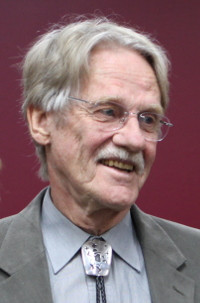The Experimental Economist, by Vernon L. Smith,
Nick Gillespie (interviewer),
Mike Lynch (interviewer),
Reason, Dec 2002
Interview before the Nobel Prize announcement; topics discussed include law (discovered vs. formally made), experimental economics, electric power, demand-interrupt pricing, airport landing and takeoff slots, NASA missions, libertarianism and economics
When Reason interviewed George Mason University economist Vernon L. Smith back in May, one of the first questions we put to him was, "You're always mentioned as a short-lister for the Nobel Prize in economics. What do you think of that?" The 75-year-old Smith ... responded with a hearty laugh ...
Over the years, he gravitated toward a libertarian position ... "Whether we're talking about politics or economics, or even social interaction," says Smith, "the best systems maximize the freedom of the individual, subject to the constraint of others in the system."
Free markets king in Sweden, at least for a day: Ten minutes with ... Donald Boudreaux, by
Donald J. Boudreaux, Bill Steigerwald, 18 Dec 2002
Comments on Vernon Smith's Nobel Prize and about the firing of Treasury Secretary Paul O'Neill
Q: For all the lay people ..., can you give me a description of Smith's "experimental economics." What kind of thing does he do?
A: ... He gives money to the subjects in the laboratories and as soon as he gives it to them, it becomes theirs. They can walk out of the room with it. They can do whatever they want with it. It's theirs to win or lose. He creates these very creative experiments that are designed to test the assumptions and the conclusions of economics. What he's found is that markets are even more robust and adept at giving consumers value than even free-market textbooks portrayed.

